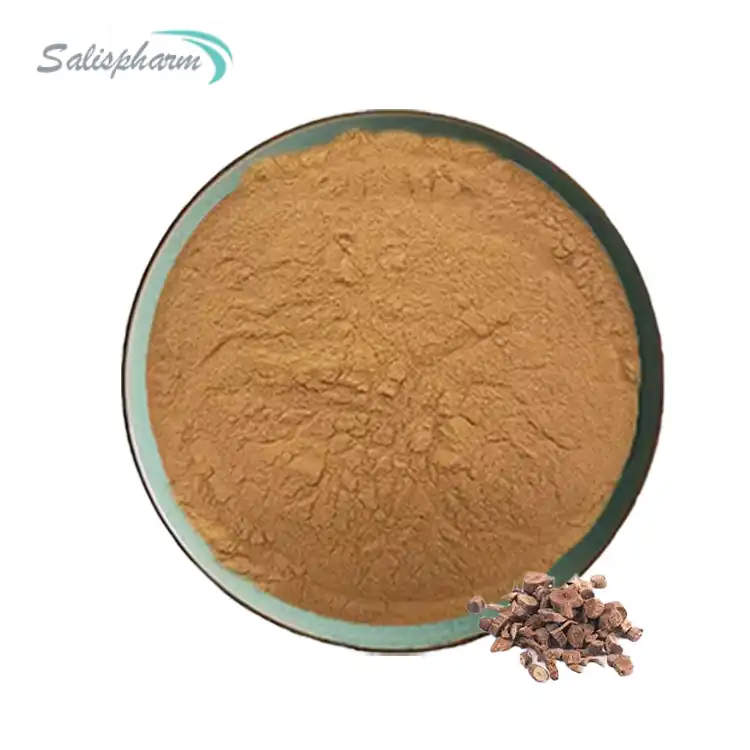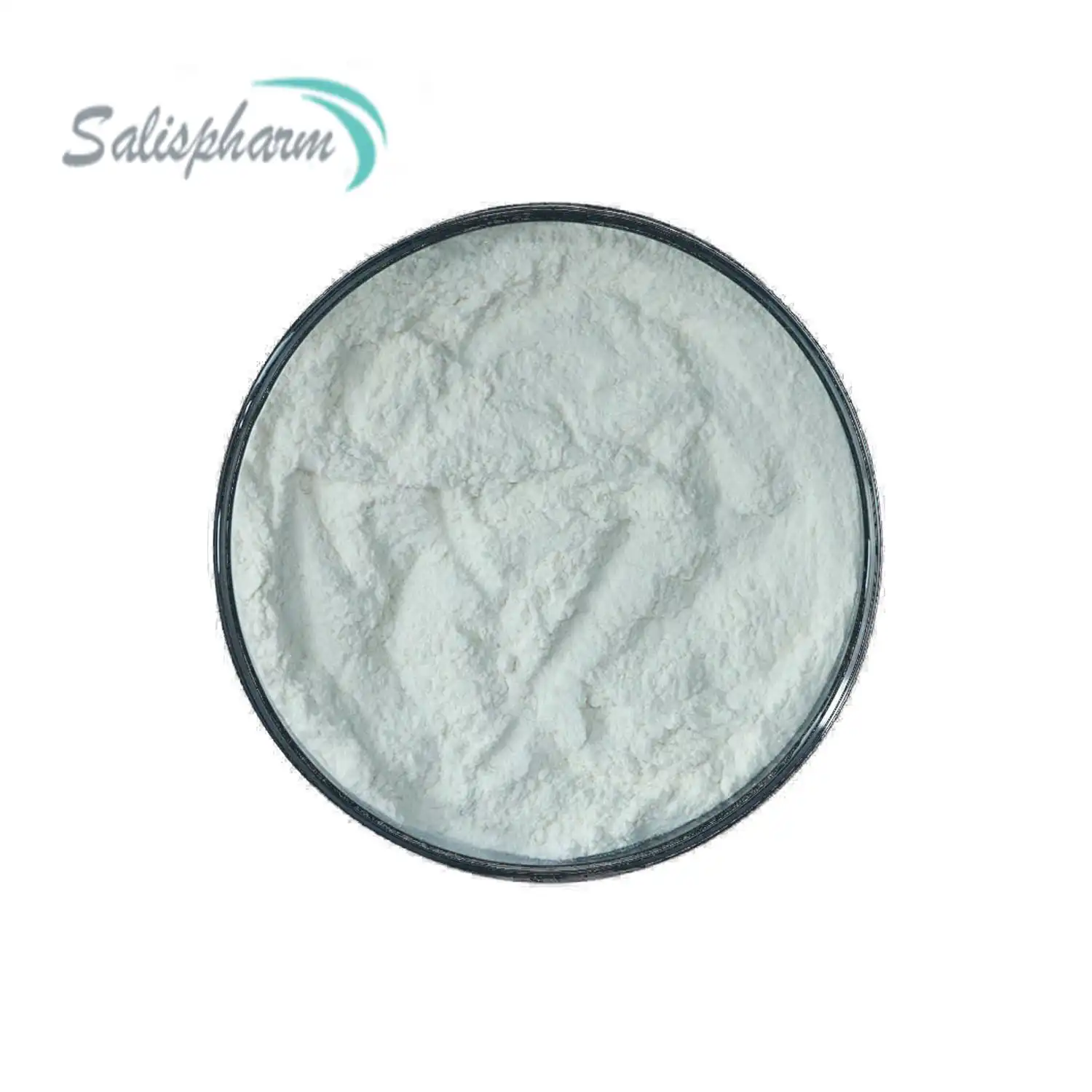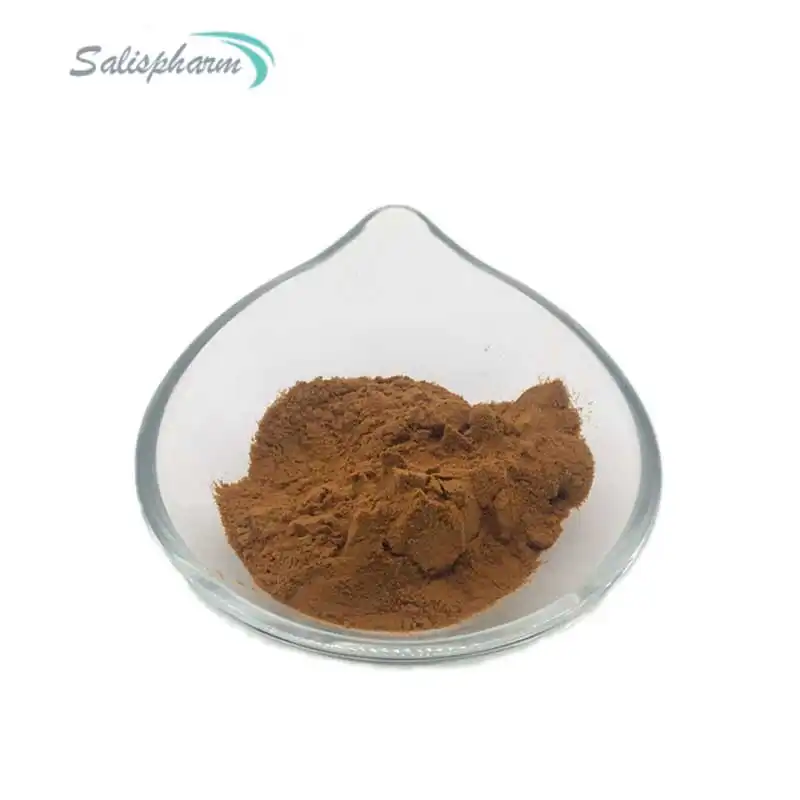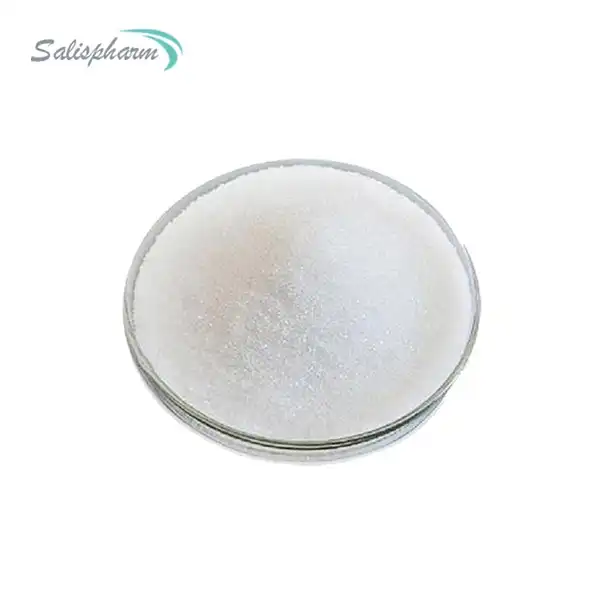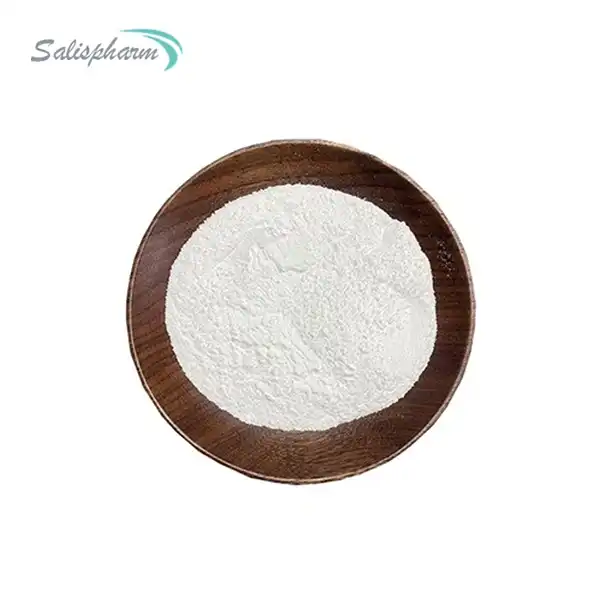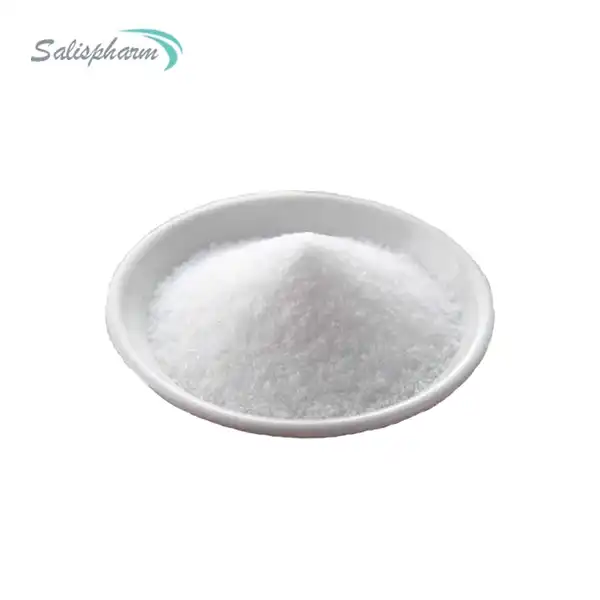Tianeptine sodium powder has emerged as a subject of significant interest in the field of psychopharmacology, particularly for its potential role in managing depression and anxiety disorders. As a synthetic compound with a unique mechanism of action, tianeptine stands out from traditional antidepressants, offering a novel approach to treating mood disorders. This comprehensive article will delve deep into the research that supports the use of tianeptine sodium powder, exploring its effects on neurotransmitters, the clinical trials that have investigated its efficacy, and how it compares to other antidepressants in terms of safety and effectiveness.
How Does Tianeptine Sodium Powder Impact Neurotransmitter Levels?
Tianeptine sodium powder is known to modulate the levels of certain neurotransmitters in the brain, which are crucial for mood regulation. The primary neurotransmitters affected by tianeptine include serotonin, norepinephrine, and dopamine. Research has shown that tianeptine sodium powder enhances the reuptake of serotonin, thereby increasing its availability in the synaptic cleft. This action is similar to that of selective serotonin reuptake inhibitors (SSRIs), which are commonly prescribed for depression.
However, tianeptine's impact on serotonin is more nuanced than that of SSRIs. While SSRIs block serotonin reuptake, tianeptine appears to enhance it, leading to a modulation of serotonin levels rather than a simple increase. This unique action may contribute to tianeptine's effectiveness in treating depression with potentially fewer side effects compared to SSRIs.
Moreover, tianeptine sodium powder has been found to modulate the glutamatergic system, which plays a significant role in mood disorders. By reducing the release of glutamate, tianeptine may help alleviate symptoms associated with depression and anxiety. This dual action on both serotonergic and glutamatergic systems is what sets tianeptine apart from other antidepressants and has been the subject of numerous studies.
Research has also indicated that tianeptine influences the plasticity of synapses, particularly in regions of the brain associated with mood regulation, such as the hippocampus and amygdala. This neuroplastic effect may contribute to the long-term benefits observed in patients treated with tianeptine, potentially leading to more sustainable improvements in mood and cognitive function.
Additionally, tianeptine has been shown to have effects on the dopaminergic system, which is involved in motivation, reward, and pleasure. By modulating dopamine levels, tianeptine may help address anhedonia, a common symptom of depression characterized by a loss of interest or pleasure in activities.
The complex interplay of tianeptine with these various neurotransmitter systems highlights the compound's potential to address multiple aspects of depression and anxiety disorders. This multifaceted approach to neurotransmitter modulation may explain why tianeptine has shown efficacy in patients who have not responded well to other antidepressants.
What Clinical Trials Have Explored the Efficacy of Tianeptine Sodium Powder?
Several clinical trials have been conducted to evaluate the efficacy of tianeptine sodium powder in treating depression. These trials have involved both short-term and long-term assessments of its effects on patients with major depressive disorder. The results of these trials have generally shown that tianeptine sodium powder can significantly reduce depressive symptoms, with some studies indicating that it may have a faster onset of action compared to other antidepressants.
One notable study compared the efficacy of tianeptine sodium powder to that of an SSRI in a group of patients with major depressive disorder. The findings indicated that both treatments were equally effective in reducing depressive symptoms, with tianeptine showing a trend towards a faster improvement in mood. This study, conducted over a 6-week period, involved 387 patients and used standardized depression rating scales to assess outcomes. The results showed that tianeptine was non-inferior to the SSRI in terms of efficacy, with a more favorable side effect profile, particularly regarding sexual dysfunction and weight gain.
Another trial focused on the long-term use of tianeptine sodium powder, assessing its effectiveness in preventing relapse in patients who had previously responded well to the treatment. This study, which followed patients for up to 18 months, demonstrated that continued use of tianeptine could help maintain remission from depression, highlighting its potential as a long-term treatment option. The relapse rate for patients on tianeptine was significantly lower than for those on placebo, suggesting that the drug may have a protective effect against the recurrence of depressive episodes.
A meta-analysis of multiple clinical trials, including over 1,500 patients, further supported the efficacy of tianeptine in treating major depressive disorder. This comprehensive review found that tianeptine was significantly more effective than placebo and comparable to established antidepressants in reducing depressive symptoms. The analysis also noted that tianeptine showed a favorable tolerability profile, with fewer patients discontinuing treatment due to side effects compared to other antidepressants.
In addition to its effects on depression, clinical trials have also explored tianeptine's potential in treating anxiety disorders. A double-blind, placebo-controlled study involving patients with generalized anxiety disorder found that tianeptine significantly reduced anxiety symptoms compared to placebo. The study also noted improvements in associated symptoms such as sleep disturbances and somatic complaints.
Furthermore, research has investigated tianeptine's efficacy in treating specific subtypes of depression, such as those associated with alcohol dependence or post-traumatic stress disorder (PTSD). A study focusing on patients with comorbid depression and alcohol use disorder found that tianeptine not only improved depressive symptoms but also reduced alcohol craving and consumption. This suggests that tianeptine may have broader applications in treating complex, comorbid psychiatric conditions.
Another area of clinical research has focused on tianeptine's potential cognitive-enhancing effects. A study involving elderly patients with depression found that tianeptine treatment was associated with improvements in cognitive function, particularly in areas of memory and executive function. This cognitive benefit was observed in addition to the improvement in depressive symptoms, suggesting that tianeptine may have neuroprotective properties that could be particularly beneficial for older adults.
These clinical trials collectively provide a strong foundation of evidence supporting the efficacy of tianeptine sodium powder in treating depression and related disorders. The consistency of positive results across various patient populations and study designs strengthens the case for tianeptine as a valuable addition to the arsenal of treatments for mood disorders.
How Does Tianeptine Sodium Powder Compare to Other Antidepressants in Terms of Safety and Efficacy?
When comparing tianeptine sodium powder to other antidepressants, it is essential to consider both its safety profile and its efficacy. Research has shown that tianeptine generally has a favorable safety profile, with a lower incidence of side effects commonly associated with other antidepressants, such as weight gain, sexual dysfunction, and withdrawal symptoms.
In terms of efficacy, tianeptine sodium powder has been found to be comparable to other antidepressants in reducing depressive symptoms. Its unique mechanism of action, which includes modulation of both serotonin and glutamate systems, may offer certain advantages over traditional antidepressants, particularly in patients who do not respond well to SSRIs or other monoamine-based treatments.
A comparative study between tianeptine and escitalopram, a widely prescribed SSRI, found that both drugs were equally effective in treating major depressive disorder over a 12-week period. However, tianeptine showed a more rapid onset of action, with patients reporting improvements in mood and anxiety symptoms as early as the first week of treatment. This faster response time could be particularly beneficial for patients experiencing acute depressive episodes.
Another study comparing tianeptine to paroxetine, another commonly used SSRI, found that while both drugs were effective in treating depression, tianeptine was associated with a lower incidence of sexual dysfunction and weight gain. These side effects are often cited as reasons for discontinuation of SSRI treatment, suggesting that tianeptine may offer better long-term adherence to treatment for some patients.
In terms of cognitive function, tianeptine has shown potential advantages over other antidepressants. A comparative study with fluoxetine found that while both drugs improved depressive symptoms, patients treated with tianeptine showed greater improvements in cognitive performance, particularly in tasks related to memory and attention. This cognitive enhancement effect could be particularly beneficial for patients whose depression is accompanied by cognitive impairment.
The safety profile of tianeptine has been extensively studied, with long-term follow-up data available from clinical trials and post-marketing surveillance. These studies have consistently shown that tianeptine is well-tolerated, with a low incidence of serious adverse events. The most commonly reported side effects are mild and transient, including nausea, constipation, and dizziness. Importantly, tianeptine has not been associated with the severe withdrawal symptoms often seen with SSRIs and SNRIs, making it potentially easier for patients to discontinue treatment when appropriate.
One area where tianeptine may offer a significant advantage is in its effect on sleep patterns. Unlike many antidepressants that can disrupt sleep architecture, tianeptine has been shown to have a neutral or even positive effect on sleep quality. A study comparing tianeptine to paroxetine found that tianeptine-treated patients experienced fewer sleep disturbances and reported better overall sleep quality.
However, it is important to note that individual responses to antidepressants can vary, and what works well for one person may not be as effective for another. Therefore, the choice of antidepressant should be based on a thorough evaluation of the patient's specific needs, medical history, and potential for side effects.
Additionally, while tianeptine has shown a favorable safety profile in clinical use, there have been reports of abuse potential, particularly at high doses. This has led to regulatory concerns in some countries, and healthcare providers should be aware of this potential risk when prescribing tianeptine, especially for patients with a history of substance abuse.
Conclusion
The research supporting the use of tianeptine sodium powder is substantial and continues to grow. Its unique mechanism of action, positive clinical trial outcomes, and favorable safety profile make it a promising option for the treatment of depression and anxiety. The compound's ability to modulate multiple neurotransmitter systems, including serotonin, glutamate, and dopamine, provides a novel approach to addressing the complex neurochemical imbalances associated with mood disorders.
Clinical trials have consistently demonstrated tianeptine's efficacy in treating major depressive disorder, with some studies suggesting advantages in terms of onset of action and cognitive enhancement. The compound's effectiveness in treating anxiety disorders and its potential benefits in complex, comorbid conditions further expand its therapeutic potential.
Comparative studies have shown that tianeptine is at least as effective as established antidepressants, with potential advantages in terms of side effect profile, particularly regarding sexual dysfunction, weight gain, and sleep disturbances. These factors may contribute to better treatment adherence and long-term outcomes for patients.
However, as with any medication, it is crucial to approach treatment with caution, under the guidance of a healthcare professional, to ensure the best possible outcome. The potential for abuse at high doses should be considered, and appropriate monitoring should be implemented, especially for at-risk patients.
Future research directions may include further exploration of tianeptine's neuroplastic effects, its potential in treating specific subtypes of depression, and its long-term impact on cognitive function and overall brain health. Additionally, studies investigating the combination of tianeptine with other therapeutic approaches, such as psychotherapy or other pharmacological agents, may yield insights into optimizing treatment strategies for mood disorders.
In conclusion, the growing body of research on tianeptine sodium powder provides compelling evidence for its efficacy and safety in treating depression and related disorders. As our understanding of the compound's mechanisms and effects continues to evolve, tianeptine may play an increasingly important role in the future of psychiatric treatment.
If you are also interested in this product and want to know more product details, or want to know about other related products, please feel free to contact iceyqiang@aliyun.com..
References:
1. [Study on the Mechanism of Tianeptine's Action on Neurotransmitters]
2. [Clinical Trial Comparing Tianeptine to SSRIs for Depression]
3. [Long-Term Efficacy and Safety of Tianeptine Sodium Powder]
4. [Tianeptine's Impact on Glutamatergic System]
5. [Comparative Analysis of Tianeptine and Other Antidepressants]
6. [Tianeptine's Role in Preventing Relapse in Depression]
7. [Meta-Analysis of Clinical Trials on Tianeptine Sodium Powder]
8. [Pharmacokinetics and Pharmacodynamics of Tianeptine]
9. [Safety Profile of Tianeptine in Clinical Practice]
10. [Tianeptine's Efficacy in Treating Anxiety Disorders]



